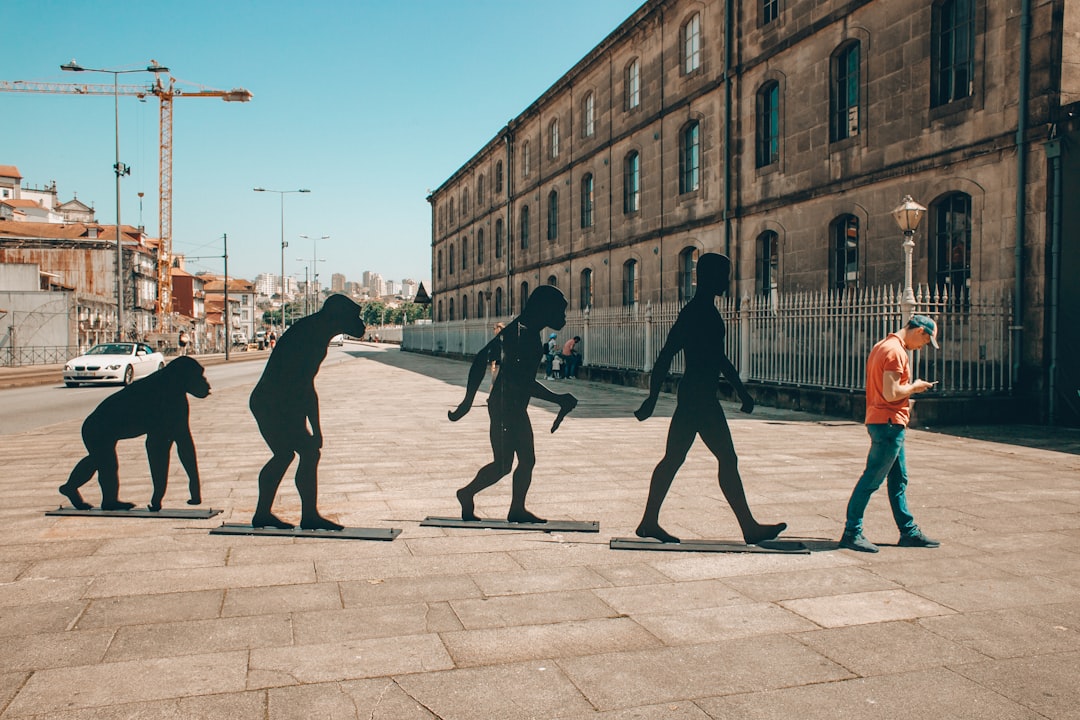Moving from "The Personal is Political" to Systemic Change
On synthesizing the individual and the societal into transformation
It feels like every day I’m inundated with a strange combination of ads and influencers telling me about the lifestyle changes I need to make to save the world, and lefties across social media telling me that everything is systemic. Now it’ll come as no surprise that I lean very heavily towards that latter, but in recent months I’ve grown frustrated with both to varying degrees and more broadly with the false dichotomies that run rampant in online culture, then spread from there to affect discussions across the rest of society. Today I don’t want to broadly get into how we can be less dichotomous thinkers, I want to zoom in (a little) to what lies between the poles of “the personal is political” and “everything is systemic” because it has become increasingly clear that for millions of people it’s hard to navigate that vast middle ground.
The idea that the personal is political introduced on the scene by Carol Hanisch at the end of the '60s and popularized in the early ‘70s. A response to the growing trend of mass consumption, some good folks wanted to intervene in the national culture and say that our personal choices, particularly around what we purchase, really matter, and in fact are political decisions with economic and political ramification both at home and abroad. And they were, and are, correct. It’s simply true that when we buy a product we are financially supporting the company that produced it, the company that transported it, and the company that stocks it. And it’s also true that some of these corporations treat workers better than others, some harm the environment more than others, and so on and so forth. I don’t think anyone reading this will disagree that politically and economically we would rather support a local bookstore, and especially a worker-owned cooperative, than Amazon.

But the problem begins when we end there. For a significant number of people “the personal is political” has evolved into “the personal is my politics.” What does that look like? The stereotype here would be someone who shops organic, only gets free-trade coffee, only watches “non-problematic” content, and that is about where their politics ends. They may generally vote blue in general elections as well, and they certainly talk a good game when it comes to being on the right side of current events. And I am not saying that this hypothetical person is horrible or terrible, far from it. But when we end our relationship with politics there, we are missing out on a tremendous amount, particularly when we face problems on a mass scale. In this example the person involved might simply not consider the need for systemic change, or more importantly may not have an analysis of how we can work towards contributing to the systems change we need to see. This again is just a crude picture, but I hope the general image is clear. I believe approach life and politics in this way is largely the end result of the concept that the personal can be our politics, that our consumption habits and diatribes on social media are sufficient political engagement.
On the other end of the spectrum is the conception that everything is systemic, to the point where the individual can be fully eclipsed. As I said earlier, I do lean heavily towards this approach in many ways. I think it’s infinitely more helpful, for example, to think of solutions to the climate crisis in terms in terms of getting rid of the fossil fuel industry than it is to frame solutions in terms of individuals recycling more or using paper straws and so on and so forth. But, the pendulum can swing too far. It is possible for the focus on the systemic to work as a way to absolve individuals of the imperative to act. What might be more common than absolution, however, is accurate thinking about the scale of the climate crisis and the necessary solutions making individuals feel helpless in the face of such a massive problem, and the massive scale of the needed solutions.
And we shouldn’t minimize or downplay the scale of what’s going on in order to make ourselves and others feel comfortable about what is surely one of the defining issues of our lifetimes, but maybe thinking a little differently about the interaction between the individual and the systemic can help us be less overwhelmed. In order to rethink our perspectives on this (false) dichotomy, we first need to be aware of a tendency in human history and thought that can drive us from one end of the pendulum to the other on important topics without pausing to see the broad territory that might lie in the middle: schismogenesis.

In their sweeping and paradigm shifting book “The Dawn of Everything” David Graeber and David Wengrow help us see the trajectory of human history differently. I don’t have room to recap the 700 page magnum opus here, but I do recommend it highly. The one topic I want to quickly zoom in on is the way they discuss the idea of schismogenesis. The term, coined by anthropologist Gregory Bateson, can be summarized as groups defining themselves in relation to one another, and growing apart in order to differentiate themselves from one another. As the Davids write, “English people trying to become as little as possible like the French, French people as little like Germans, and so on.” They have much more to say about this important concept, and how it can fundamentally shift the way we think about the cultural and social development of humanity, but I wish to extend it in a slightly different direction.
I think we can very clearly see schismogenesis present in what we might call intellectual history. What I previously referred to as a pendulum swinging, where people have reacted to an overemphasis on the individual’s role in the climate catastrophe, for example, by focusing almost solely on the systemic, is not just the inevitable movement of an inanimate object. People intentionally move away from ideas they disagree with, and whether because of some inherent disposition towards schismogenesis or some other cause they often end up somewhere like the opposite of where they started. There may be other logics to this progression, and in the age of social media we appear even more inclined towards simple dichotomies, but regardless the end result is often black and white thinking with little room for a synthesis of the two extremes.
In the case of individual agency and systemic thinking there is a major imperative to find a healthy middle. When it comes to climate, we each need to bring a systemic analysis to the role that the fossil fuel industry and capitalism play in the building crisis we see around us, and we simultaneously need to see that we can play our part to address the crisis through organizing and action. No single person will be the main character in the story of how humanity’s greatest problem was solved, and that’s okay. I worry sometimes that in this individualist society we can think that because we can’t tackle an issue alone we can’t tackle it at all. And it’s just the opposite. Or, if I take my own advice, it’s a different but not quite opposite answer: problems that can’t be solved alone aren’t problems that can’t be solved, they’re problems that require collective action.
Every issue that humanity faces at scale requires a response at scale, a mass, collective response. And all we can fully control within that mass is our own actions, but we can bring others in, help them learn, and orient ourselves and the people we organize and think alongside towards collective action. Our thinking about the individual and the systemic, about ourselves and what’s needed to change the world around us can thus be synthesized. It’s not one or the other, it’s not the personal or the systemic, it’s the personal oriented towards the systemic, and empowered to be a part of the collective force to change the world at scale.
Grace Lee Boggs had many wise things to say about politics, radicality, and revolution. Her knowledge grew and her approach changed immensely over her 70+ years as an activist and organizer. But one line I think about often involves true revolution being both about the individual and society. She said, “To make a revolution, people must not only struggle against existing institutions. They must make a philosophical/spiritual leap and become more 'human' human beings. In order to change/transform the world, they must change/transform themselves.” And don’t be mistaken, she did think it involved changing our institutions. But by the end of her life she thought that many revolutions had forgotten the part where we ourselves also need to change. Each of us is socialized with countless beliefs, some close to the core of our being and some more peripheral. Without questioning those ideas we hold most dear, like those involving our own worth, the worth of others, and the purpose of this life we don’t have much chance changing the world in ways that get down to the fundamental structure of society. On the other hand, if we see the process of transformation as a synthesis of the internal and the external, the personal and the systemic, maybe we can reach the radical change that’s needed to protect life on Earth and move towards a world of real flourishing. Maybe we can play our part in changing the world.


Thoughtful post, but that's not what "the personal is political" means, as presented by Audre Lorde, intersectional womanist — which is where a lot of intersectional feminists of today learned the concept. It was never about consumer choices at all. It was about how our personal struggle as trans and queer women of color and marginalized gendered people of color was a political issue, about how our very existence is politicized against our will in white supremacist cisheteropatriarchal usa, our very existence is political — and thus we must act in reaction to that involuntary politicization. It wasn't meant to be individualist to begin with.
The IWW had a slogan that addresses this issue in large part - build a new society inside the shell of the old. Recognizing that we're starting today with a flawed society that can't end overnight is a useful perspective.